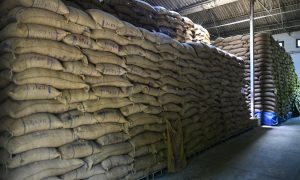Sri Lanka: Maize use for ethanol production threatens poultry industry

The All-Ceylon Egg Producers’ Association (ACEPA) expressed concerns over 50,000 metric tons of maize being diverted annually to ethanol production, affecting poultry feed supply. With local maize production insufficient to meet demand, ACEPA urged the government to prioritize maize for food production. They called for a balanced maize allocation system to avoid further shortages and rising prices.
The All-Ceylon Egg Producers’ Association (ACEPA) has raised concerns that the growing use of maize by the alcohol industry for ethanol production is directly affecting egg and chicken prices in Sri Lanka. ACEPA Treasurer Wijaya Alwis, speaking at a press briefing, stated that over 50,000 metric tons (MT) of maize are being diverted annually to the alcohol industry for ethanol production. He noted that Sri Lanka’s total annual maize requirement is approximately 600,000 MT, yet local production falls short.
Alwis explained that maize is in high demand for other food products, including human consumption, leaving very little available for animal feed. This has created significant pressure on the poultry industry, as reduced maize availability has led to shortages in feed production.
“With local maize production being limited, it’s essential that we prioritize its use for producing protein-rich foods like eggs and chicken for human consumption,” Alwis emphasized. “The 50,000 MT of maize diverted to ethanol production is worsening the shortage, which in turn is driving up prices for consumers.”
Alwis called on the government to consider allowing ethanol producers to import maize to meet their requirements, while ensuring that domestic industries such as poultry and livestock farming receive priority access to local supplies. “A well-structured system for importing maize is needed to balance the demands of both ethanol production and the poultry industry,” he said.
He also mentioned that the Secretary to the Ministry of Agriculture has already been informed about the issue. “If this situation is not addressed, we will face further maize shortages and an increase in imports, beyond the current levels required to meet demand,” Alwis warned. He stressed that with local production unable to fulfill domestic needs, a more balanced approach to maize allocation is urgently needed. If the trend of diverting maize to ethanol production continues, it could lead to even greater maize imports.
Alwis concluded by urging the government to take swift action to safeguard the local poultry industry and ensure that maize remains available for essential food production.
To read more about Ethanol Industry News, continue reading Agriinsite.com
Source Link : Chinimandi















